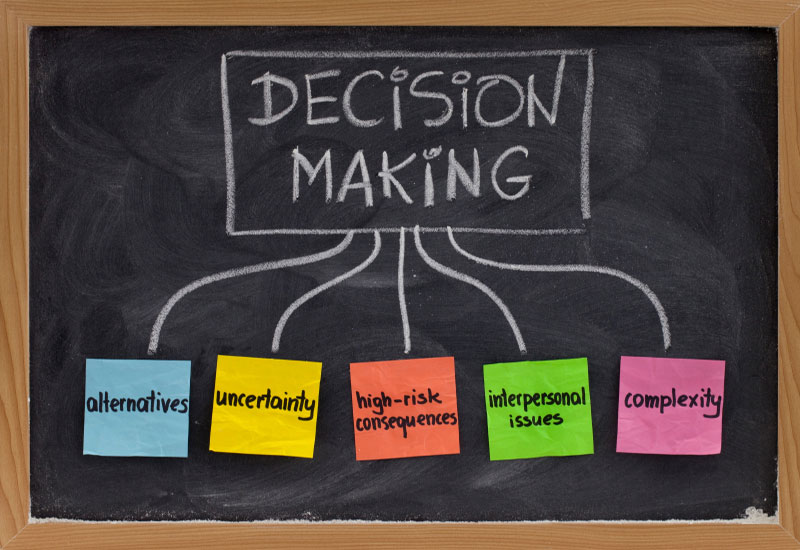In today's rapid world, executing effective decisions can often feel challenging. Whether you are faced with critical career choices, private issues, or daily life situations, the ability to navigate these decisions with confidence and clarity is vital. Strong decision-making skills not just influence our outcomes but also form our experiences and growth. By understanding the art of choosing wisely, we can nurture a more satisfying and achieving life.
This piece explores a holistic approach to enhancing decision-making skills, offering tested techniques and insights into the psychological aspects of our choices. From utilizing intuition and critical thinking to staving off decision fatigue, we will delve into multiple strategies that enable individuals to make improved choices even under pressure. Whether you stand as a leader looking to make tough calls or someone seeking to enhance your everyday decision-making, there is valuable knowledge to gain that can revolutionize how you handle every decision in your life.
Methods for Successful Decision-Making
Effective decision-choosing requires a blend of logical skills and social intelligence. One of the the powerful techniques is the use of decision-making frameworks. Such structured approaches help decision-makers assess options methodically, ensuring that every relevant factors are factored in before reaching a conclusion. Instances include the pros and cons list, the SWOT analysis, and the decision matrix. By employing these frameworks, you can achieve clarity and make well-considered choices with confidence.
A further key technique is to cultivate mindfulness during the decision-making process. By being in the moment and aware of your cognition and feelings, you can reduce anxiety and enhance mental clarity. Mindfulness allows you to pause, reflect, and assess your options without being overwhelmed by stress or external pressure. This method not only improves your decision-choosing skills but also encourages a deeper understanding of your values and priorities.
Lastly, it is essential to learn from past decisions, both good and bad. Contemplating on previous choices can reveal patterns in your decision-choosing process, helping you to recognize areas for development. Adopting a growth mindset enables you to view failures as learning opportunities rather than failures. This approach encourages resilience and adaptability, crucial traits for making improved decisions in the future. spintax
Understanding the science and Emotional Intelligence in Decision-Making
Understanding the science behind choices can significantly enhance our ability to make effective decisions. Our cognition, feelings, and external influences all play a crucial role in shaping our choices. Mental biases, such as the tendency to favor information that confirms our beliefs and excessive confidence in our judgments, can distort our decision-making, leading to poor choices. Identifying these biases allows us to step back and evaluate our thinking more critically. By cultivating self-awareness, we can identify when our decision-making is affected by emotional responses or biases, enabling a more logical approach toward important decisions.
Emotional awareness is vital in dealing with difficult decisions, especially under stress. It encompasses the ability to understand and control our emotions and understand with others. This capability helps us evaluate situations from various angles, leading to more considerate and informed outcomes. When confronted with intricate dilemmas, leveraging emotional intelligence allows us to remain calm and collected, fostering better focus and understanding. By recognizing our triggers and those of others involved, we can make more balanced decisions that take into account the human element of every context.

Decision-making is not solely a rational process; feelings are intertwined with our decisions. Learning how to accept and utilize our emotions, instead of ignoring them, can be a crucial benefit. For instance, good feelings can inspire creative solutions, while bad feelings may signal the need for care. By developing emotional resilience, we can learn to navigate high-pressure scenarios more effectively and make informed choices that correspond with our values. In doing so, we cultivate a decision-making style that is both rational and emotionally attuned, resulting in choices that are more satisfying and aligned with our true goals.
Strategies for Addressing Choice Fatigue
An effective approach to alleviate decision fatigue is to reduce your choices. This can be accomplished by establishing concise priorities and cutting down down options before arriving at a decision. For example's sake, define a series of benchmarks that is most relevant to you, which allows you to filter options quickly and efficiently. By cutting back on the number of choices you face, you can conserve mental energy and reduce stress.
A different useful method is to establish routines and make specific decisions habitual. By creating habits around daily choices, like meals or your morning routine, you open up cognitive resources for more significant decisions. This practice not only reduces the number of decisions you need to make but also creates a sense of stability and reliability in your day-to-day life, allowing you to approach more challenging decisions with a sharper mind.
Lastly, incorporating breaks and mindfulness into your routine can greatly help in reducing decision fatigue. Taking https://peterashbysmith.com/how-a-coffee-shop-line-taught-me-effective-decision-making/ throughout your day to relax your mind can revitalize your cognitive functioning and improve clarity. Additionally, awareness practices can boost your perception of stress and mental clutter, helping you make decisions with greater focus and intention. By prioritizing self-care and mental clarity, you can boost your overall decision-making capabilities.
